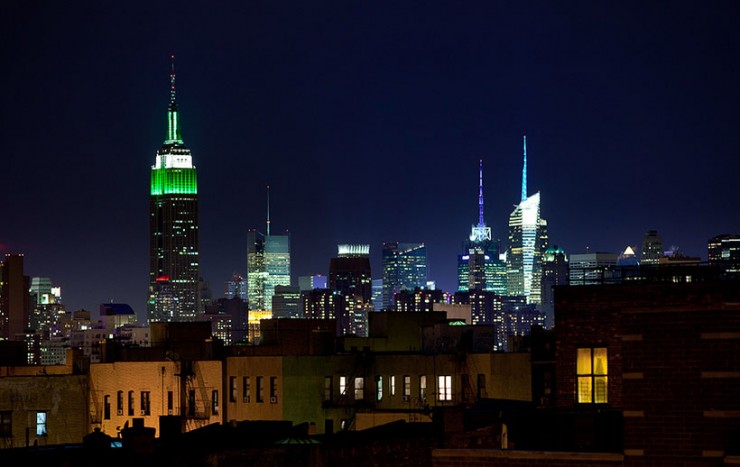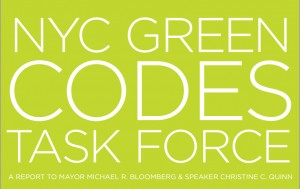

Project Profiles
NYC Green Codes Task Force
Chris Garvin
Share
Learn more about our environmental strategy work and services by emailing us at [email protected]. Follow the conversation on twitter: @TerrapinBG.
In July 2008, New York Mayor Michael Bloomberg and New York City Council Speaker Christine Quinn convened the NYC Green Codes Task Force. The charge to the Task Force was to propose green code amendments and regulations affecting buildings in New York, bringing them to the “next level.”

NYC Green Codes Task Force Report Cover. Copyright Urban Green Council
Released in February 2010, the 111 recommendations of the NYC Green Codes Task Force are tailored to New York City, but many will be applicable to other municipalities, particularly those that use the ICC family of construction codes or ASHRAE for energy. Terrapin participated in the Task Force’s 200+ volunteers that produced a work of great specificity and depth. Each proposal includes statutory language, a detailed explanation of the issues, an analysis of costs and savings, precedents from other jurisdictions, a comparison of the proposal to any related LEED credits, and information on implementation.
Four years after the NYC Green Codes Task Force released its influential report, 51 of its 111 recommendations have been incorporated into laws and practices, with many others in the pipeline. By 2030, the measures already implemented will reduce citywide carbon emissions by almost 5%, lower daily water consumption by the equivalent of 30 Central Park Reservoirs, and divert 100,000 tons of asphalt from landfills annually, all while helping ensure that NYC’s real estate industry takes a leadership role in creating new jobs in the clean tech economy.
In the Water Efficiency and Building Stormwater Committee, Partner Chris Garvin and his co-chair Bob Benazzi of JBB examined every component of the plumbing system in buildings with the committee in order to identify safe and environmentally beneficial strategies to integrate into the building code. With our committee, we developed seven robust proposals to green the plumbing code. These reforms include improved plumbing standards and water sub-metering to reduce consumption and new rules to allow for water reuse and recycling. In 2010, three of the seven proposals were signed into law as Local Laws 54, 56, and 57. Over the next ten years, the plumbing efficiency standard upgrade alone will save an estimated 30 billion gallons of water for the city. Terrapin Partners, Bob and Bill acted as Industry Advisors with purview over all the committee’s efforts to ensure that they addressed the code in a comprehensive and practical manner.
*Feature image copyright whatmattdoes/Flickr
*Header image copyright Paul Mcgeiver/Flickr
Filed under:
Chris Garvin
As a partner, Chris is an architect and sustainability leader focused on systemic thinking to address challenges in the built environment. Chris believes we can learn how to live on this planet if we start listening to nature again.
Topics
- Occupant Comfort
- Materials Science
- Speaking
- LEED
- Terrapin Team
- Phoebe
- Community Development
- Greenbuild
- Technology
- Biophilic Design Interactive
- Catie Ryan
- Spanish
- Hebrew
- French
- Portuguese
- Publications
- Carbon Neutrality
- Environmental Values
- Conference
- Psychoacoustics
- Education
- Workshop
- Mass Timber
- Transit
- Carbon Strategy
- connection with natural materials
- interior design
- inspirational hero
- biophilia
- economics of biophilia
- Sustainability
- Systems Integration
- Biophilic Design
- Commercial
- Net Zero
- Resorts & Hospitality
- Energy Utilization
- Water Management
- Corporations and Institutions
- Institutional
- Ecosystem Science
- Green Guidelines
- Profitability
- Climate Resiliency
- Health & Wellbeing
- Indoor Environmental Quality
- Building Performance
- Bioinspired Innovation
- Biodiversity
- Residential
- Master Planning
- Architects and Designers
- Developers and Building Owners
- Governments and NGOs
- Urban Design
- Product Development
- Original Research
- Manufacturing
- Industrial Ecology
- Resource Management
- Sustainability Plans
- Health Care


